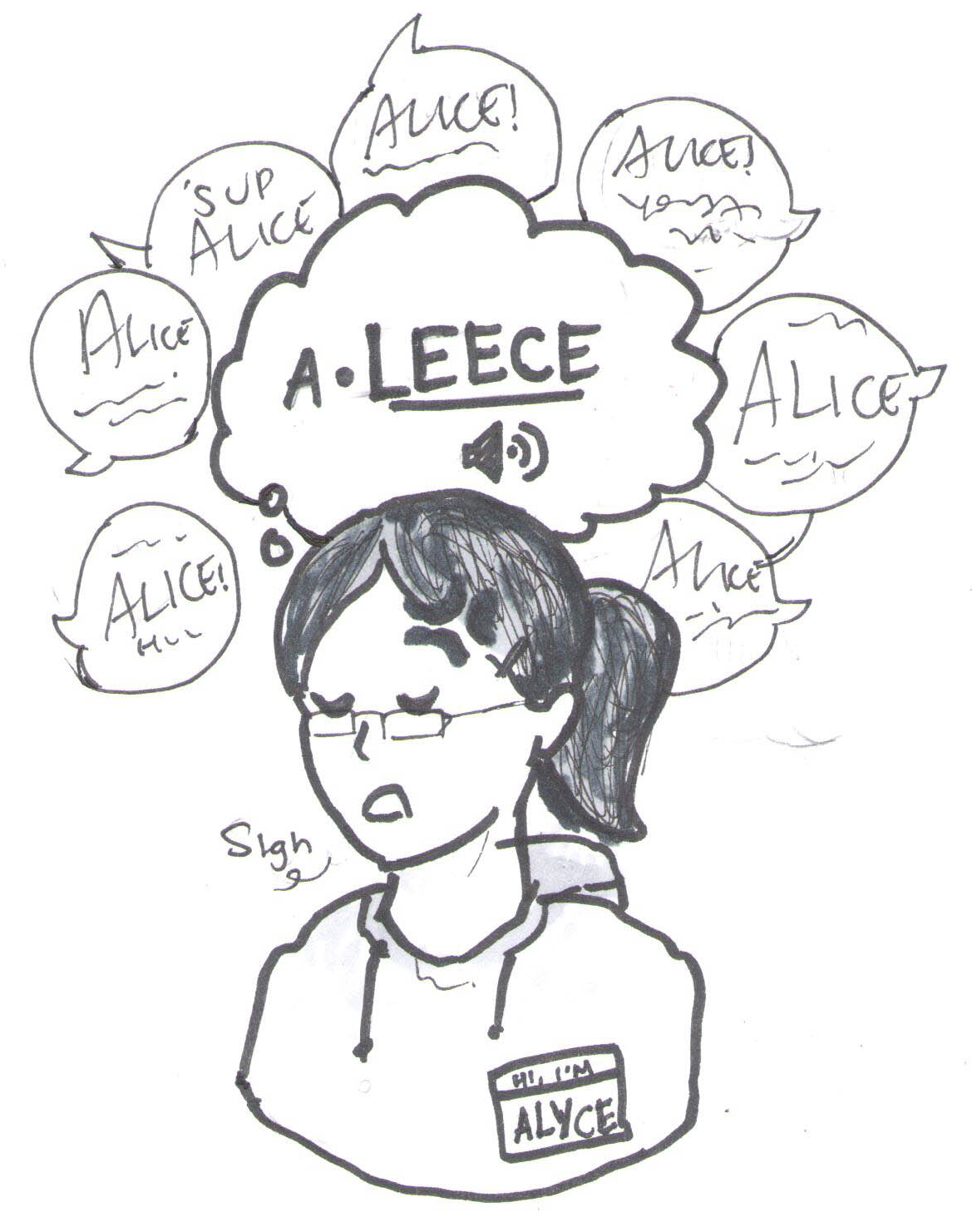

Having a unique name has its perks — you never have to add a last initial to your first name, and when someone calls your name, no one asks, “which one?” It makes you stand out. But for some, standing out is the last thing they want. The first weeks of school can become an annoying time of correcting teachers and peers over and over again.
For sophomore Cassius Hayes, name mispronunciation is something he has learned to deal with. “Almost every time during role call, or at stores when you have to order and give your name [my name is said incorrectly,]” says Hayes. Most of the time, he lets it go. “[I don’t correct people] unless it’s in a class … because I am going to be working with those people for a long time,” he says. “But if it’s at a store, or a shop, I usually just let it slide.”
Perhaps this is because Hayes’s name is more important to his parents than it is to him. Hayes is named after Cassius Clay, who is better known as Muhammad Ali, the renowned African American boxer and activist. “I’ve grown to like it, so I guess it’s special to me now, more than it was beforehand,” he adds.
For freshman Nyela Walter, her name represents her heritage; so correct name pronunciation is important to her. “[Nyela is] an African name, and that makes up who I am, [so] I love to go by it … it kind of is a part of me.” Walter believes that correcting people when they mispronounce her name is essential. “I always try to correct them,” she says, “I think it is important to always correct someone … just make sure they know how it is pronounced in the beginning so they don’t mispronounce it [later].”
Many psychologists and experts agree. Yee Wan, president of the National Association for Bilingual Language, believes that saying someone’s name wrong invalidates the religious or cultural significance behind it. Wan immigrated to the United States from China as a young girl. She argues that name mispronunciation targets immigrants and new English learners. In an article by Quartz, she says, “Mispronouncing a student’s name truly negates his or her identity, which, in turn, can hinder academic progress.”
However, this claim is met with controversy. Is it fair to place this responsibility of constantly correcting teachers on timid kids? Is it fair to blame a teacher if the student does not correct them?
Perhaps the most fundamental question is: Why do students not correct teachers when their name is mispronounced? Last year, Hayes’s teacher pronounced his name wrong the entire year because Hayes never corrected him. “It was kind of embarrassing,” he said, “but I put that upon myself.”
His reason for not speaking up? “I thought it was easier that way, and I was too scared to [correct him],” Hayes explains. Children are often raised to believe that challenging adults is rude and disrespectful. This fear of correcting an authority figure could be the reason people, especially students, resolve to silence instead of asserting themselves.
Hayes and Walter are both aware that their unique names sometimes make name mispronunciation inevitable. “At first, it did [bother me], because I … thought it was rude,” says Hayes, “but then I realized that a lot of people hadn’t heard a name like mine before, so I couldn’t really blame them for mispronouncing it.”
Along with many others, Hayes and Walter, choose not to speak up because it’s intimidating, or out of fear that correcting someone will cause even more confusion and draw even more attention.
In the past few decades, the country has become increasingly diverse, and unique names have become more popular; making name mispronunciation more common than ever. Both Hayes and Walter agree that the key to minimizing name mispronunciation is to be educated and attentive. “I want people to pronounce [my name] the way I pronounce it,” says Walter, “People just need to listen to what I am saying the first time.”



